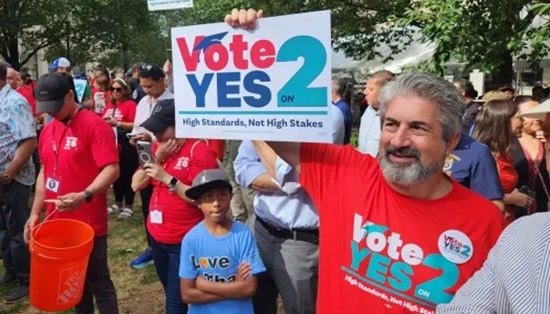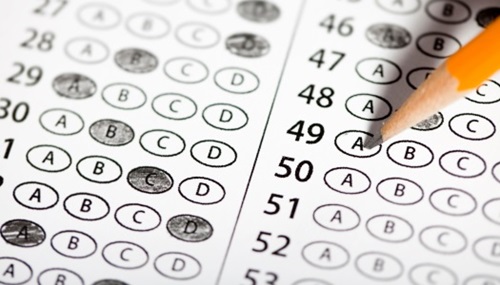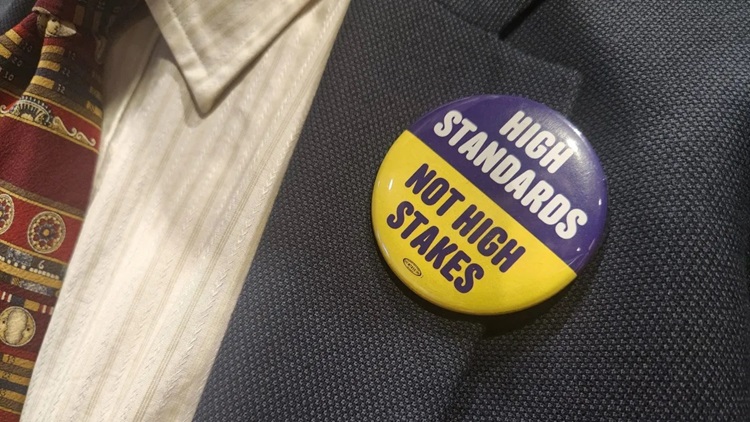Political Notebook: Amid ballot fight, teachers’ union dipped into legislative races
Plus: Crucial meeting for Healey’s MBTA task force
THE FINAL TALLY isn’t in yet, but the latest numbers show the Massachusetts Teachers Association spent more than $15 million on Question 2, their successful ballot measure to neuter the high-stakes MCAS test.

But that wasn’t the full extent of efforts by the state’s largest teacher’s union to influence outcomes in the election. The union’s super PAC, which can raise and spend unlimited amounts of money as long as it doesn’t coordinate with the candidates it supports, spent just over $183,000 to back House and Senate contenders who had been endorsed by the MTA.
Getting support from the union, which has spent years trying to end the state graduation exam, involved candidates passing something of high-stakes test from the MTA. The union asked about candidates’ support for the MCAS ballot question as well as their stand on the union’s other priorities.

The super PAC didn’t treat all 20 or so candidates equally. Dylan Fernandes, the Democratic candidate for a Plymouth-based state Senate seat, received more support than many of the others because he was in a closely contested race. He ended up beating Republican Matt Muratore by a slim margin.
Overall, super PAC spending was subdued this year compared to two years ago, when statewide offices were on the ballot and nearly $8 million flew out the door, and last year, when various outside groups spent $800,000 on municipal races in cities and towns.
The teachers’ union’s super PAC this year made up roughly a third of the total super PAC spending, which came to just over $658,000. The other usual suspects surfaced, too: Super PACs aligned with environmental advocates and real estate agents also jumped into legislative races, as well as the teachers union’s foes on many issues, Democrats for Education Reform.
But the 10 campaign committees – the “yes” and “no” sides – behind the five ballot questions spent the most, totaling tens of millions of dollars, with the Massachusetts Teachers Association leading the pack, and outstripped the business-backed “no on 2” side by roughly $10 million.
Transportation task force up against end-of-year deadline
The transportation task force put together by Gov. Maura Healey is approaching its final destination, with a report due to be released December 31. Created through an executive order, the 31-member task force is charged with “making recommendations for a long-term sustainable transportation finance plan that addresses the need for a safe, reliable, and efficient transportation system, including roadways, bridges, railways, and bus and transit systems.”
Since it was formed in January, the task force has had meetings as a big group, as well as smaller “focus groups,” according to WBUR.
But some things appear to be off the table already, as both Healey and her transportation chief have said they will not increase tolls or add new ones on any roads. Monica Tibbits-Nutt, the state transportation secretary and chair of the task force, also recently said that the millionaires tax passed by voters in 2022 won’t be enough to fix the MBTA’s looming budget problem.
With about a month to go, nothing is yet down on drafting paper. That makes the remaining meetings, like the one planned for December 4 involving the entire task force, all the more crucial.
In an interview, Tibbits-Nutt called the upcoming meeting a “culmination of our previous focus groups, previous meetings, and really an opportunity to take all of that information, especially when we dive into things like housing, climate resiliency, and give an opportunity for the members to start discussing that, start to bring around the revenue models, financial models.”

She added: “This is going to be one of the final meetings and I think probably the most substantive.” The question of just how substantive will have to be determined afterwards, since the meeting won’t be open to the public.
